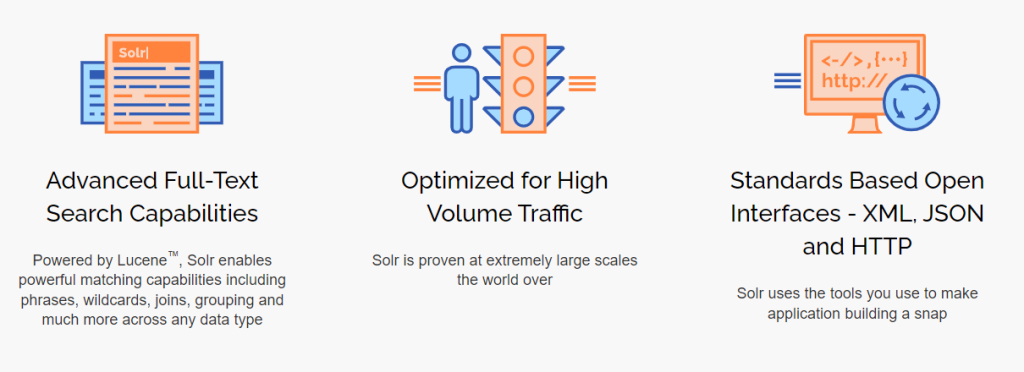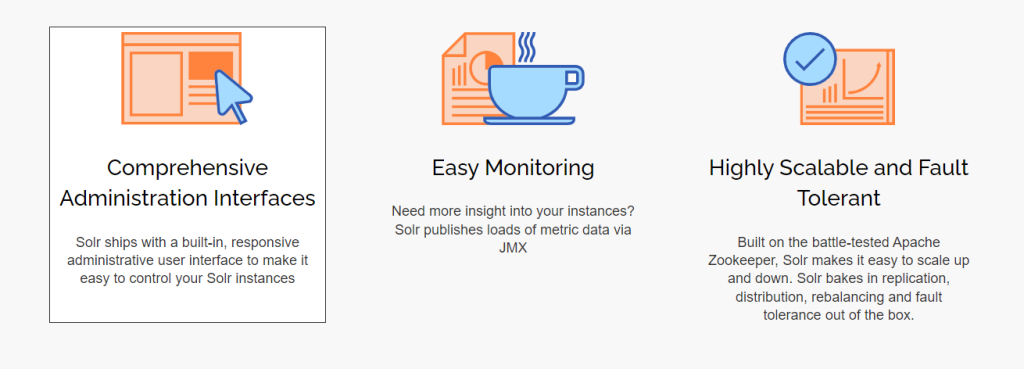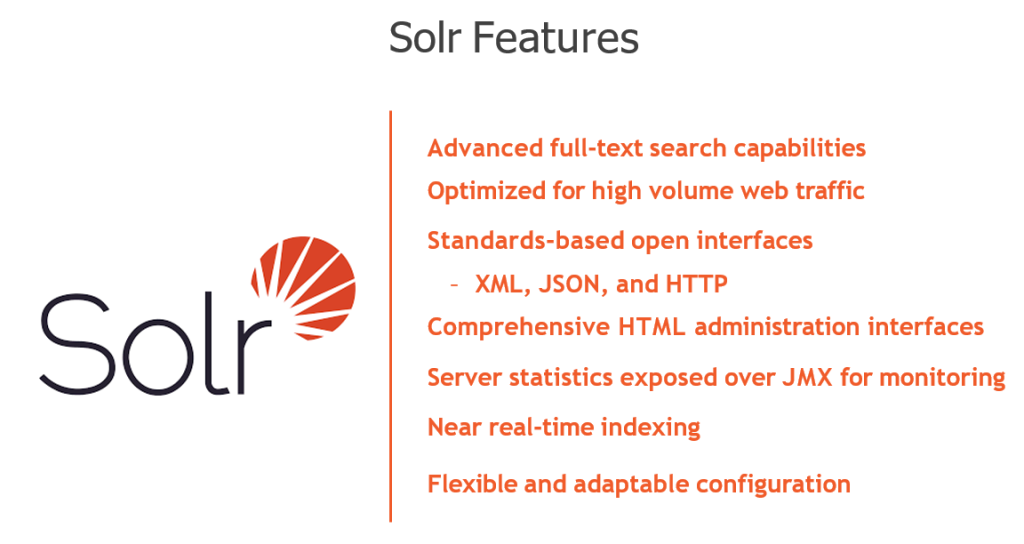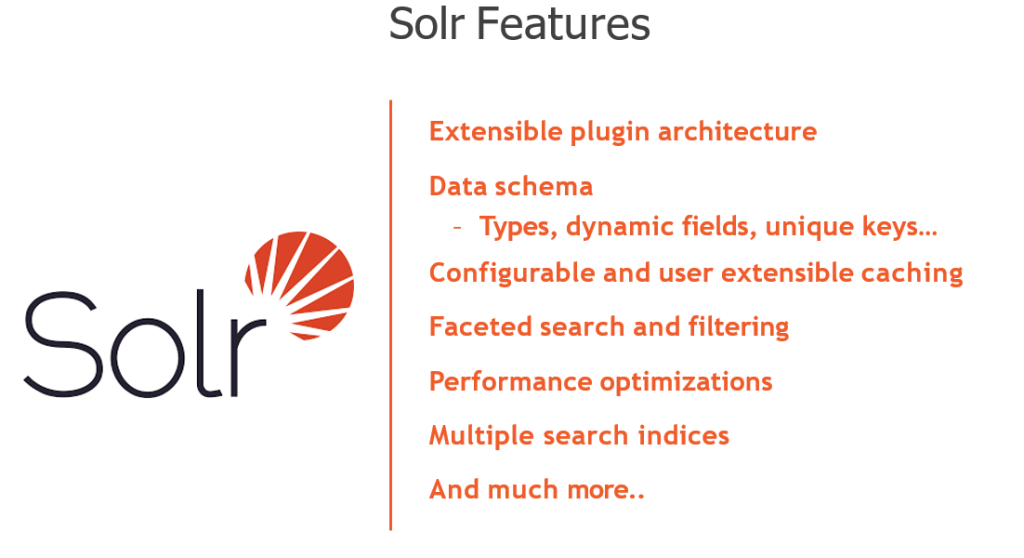
Solr is a standalone enterprise search server with a REST-like API. You put documents in it (called “indexing”) via JSON, XML, CSV or binary over HTTP. You query it via HTTP GET and receive JSON, XML, CSV or binary results.

Apache Solr is an open-source search platform built on Apache Lucene, one of the most powerful and popular search software libraries. It is designed to handle a wide variety of data types and offers robust full-text search capabilities, making it suitable for large-scale search applications. Solr is highly scalable, allowing it to manage and index very large volumes of data efficiently.
List of Solr Features



Apache Solr is a powerful, scalable, and feature-rich search platform built on Apache Lucene. It offers a variety of features designed to handle large volumes of text-centric data and return search results quickly and accurately. Here are some of the key features of Solr:


- Full-Text Search: Solr supports high-performance full-text search, enabling complex querying on large volumes of text data.
- Faceted Search: Solr provides powerful faceted search and navigation capabilities to allow users to refine search results by various attributes.
- Hit Highlighting: Solr can highlight searched terms in the search results, making it easier for users to find relevant information in the document content.
- Dynamic Clustering: Solr supports the grouping of search results into clusters based on the similarity of their content.
- Database Integration: Solr can be integrated with databases through Data Import Handler (DIH), enabling indexing from various database sources.
- Extensible Plugin Architecture: Solr supports custom plugins to extend its functionality, including new ways to index, transform, and query data.
- Scalable and Distributed Search: SolrCloud offers distributed indexing and search capabilities, ensuring high availability and scalability.
- Advanced Configurability: Solr allows comprehensive configurability of the indexing process, including tokenization, text analysis, and schema design.
- Near Real-Time Indexing: Solr supports near real-time indexing, allowing new documents to be searchable almost immediately after they are added.
- Rich Document Handling: Solr integrates with Apache Tika to support indexing and searching of rich document formats such as PDF, Microsoft Office, and more.
- GeoSpatial Search: Solr supports location-based search and distance sorting, suitable for applications requiring geolocation capabilities.
- Multi-Tenancy: Solr can be configured to support multiple search applications on a single platform, each with its configuration.
- Security Features: Solr includes built-in security features like authentication, authorization, and encryption options to help secure search applications.
- Admin UI: Solr comes with an advanced and user-friendly administration interface to manage, monitor, and control the Solr instances easily.
- Metrics Reporting: Solr provides detailed metrics about its operation, which can be essential for monitoring and optimizing performance.
- Flexible and Adaptable API: Solr offers robust APIs (HTTP/XML, JSON, and Binary) that make it highly adaptable for a variety of frontend applications.